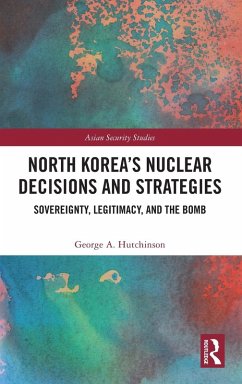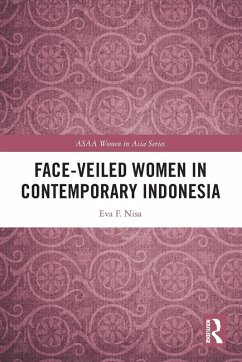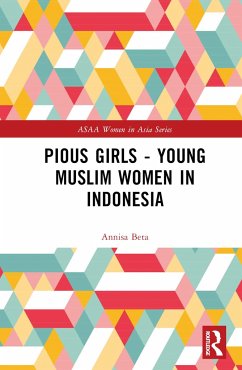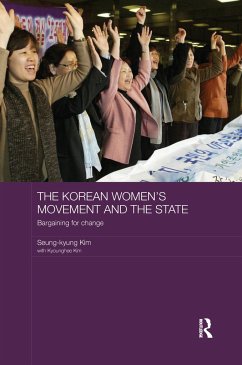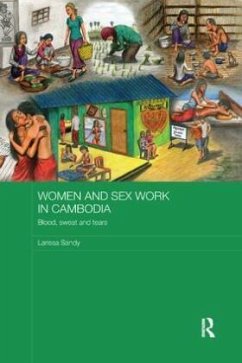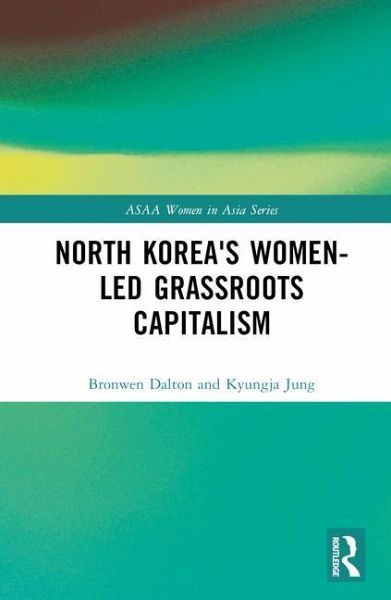
North Korea's Women-led Grassroots Capitalism
Versandkostenfrei!
Versandfertig in 6-10 Tagen
154,99 €
inkl. MwSt.
Weitere Ausgaben:

PAYBACK Punkte
77 °P sammeln!
North Korea is in the throes of economic and social, if not political, transition. These changes have a pronounced gender dimension: the crisis of the command economy and the gradual emergence of an informal market economy, where, remarkably, the vast majority of North Korea's traders and merchants are women. This book examines the complex relationship between gender roles and economic and social changes in North Korea. The book, based on extensive original research, provides rich details of this development, considers how women's roles in North Korea have developed over time and highlights ho...
North Korea is in the throes of economic and social, if not political, transition. These changes have a pronounced gender dimension: the crisis of the command economy and the gradual emergence of an informal market economy, where, remarkably, the vast majority of North Korea's traders and merchants are women. This book examines the complex relationship between gender roles and economic and social changes in North Korea. The book, based on extensive original research, provides rich details of this development, considers how women's roles in North Korea have developed over time and highlights how women are driving change in other areas of North Korean life too, including family relationships, women's sexuality and reproductive issues and women's cultural identity.





